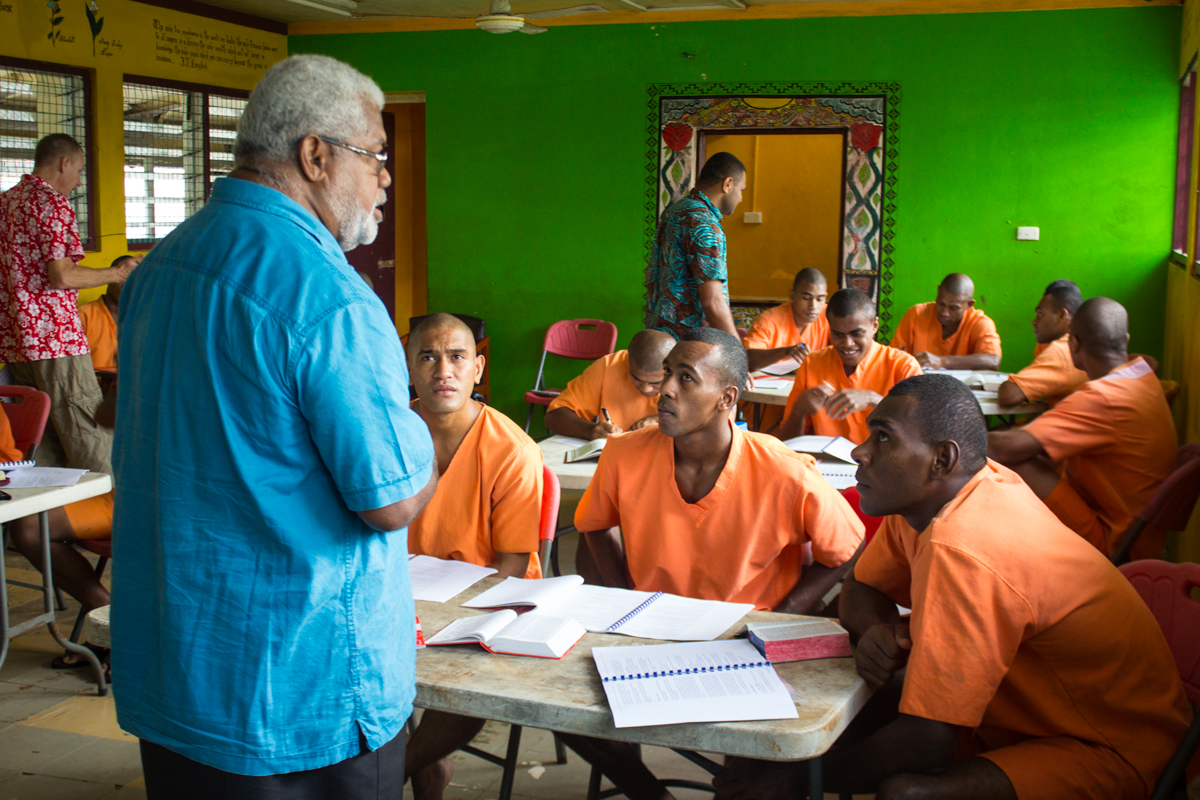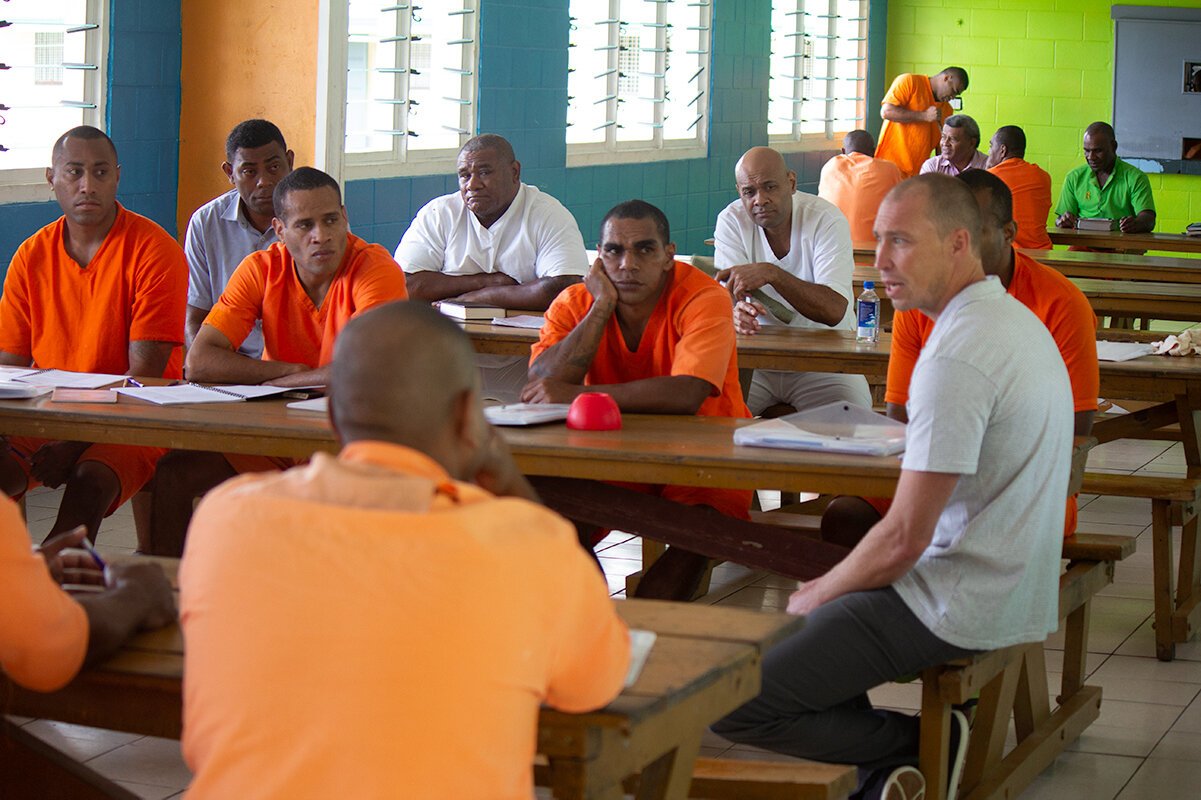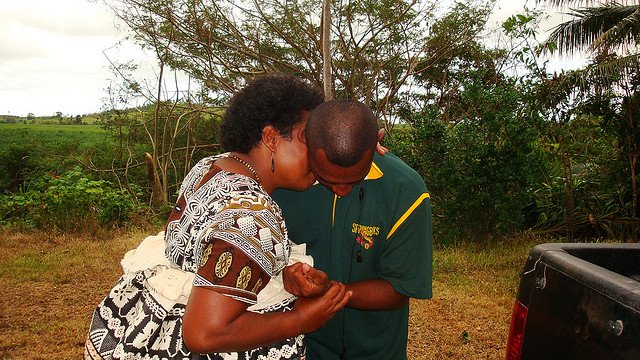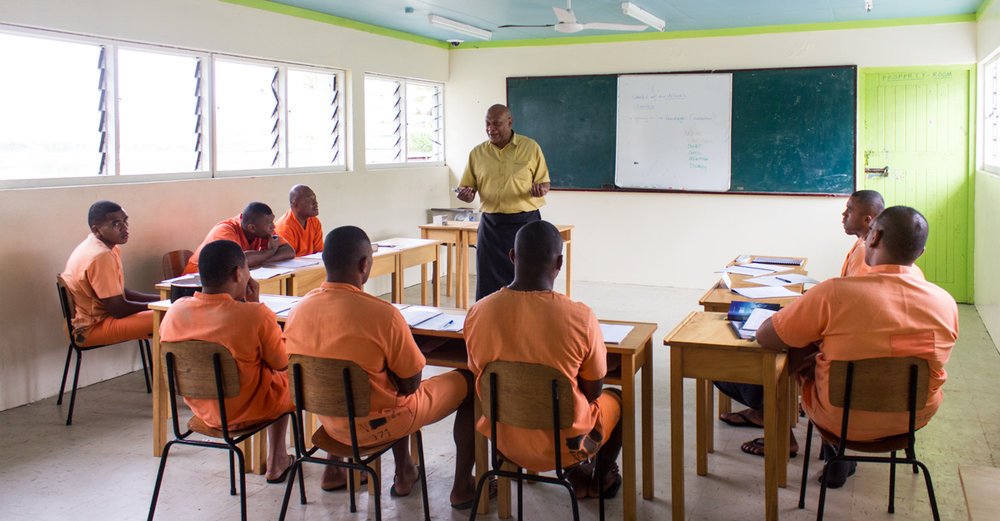From Isolation to Connection: Centering Story and Relationship at the Heart of Fijian Prison Rehabilitation




Photos from Operation Foundation.
Story is a transformative agent with the power to reshape individuals, communities, and the world. Genuine healing and restoration require us to engage in ‘Re-story-ation’ – our relationship with ourselves and the world cannot be healed until we acknowledge and engage with the narratives that shape our lives.
The profound and effectual role of story in renewing individuals and communities is beautifully personified in the work done by Operation Foundation, a restorative organization on the frontline of inmate and ex-inmate rehabilitation efforts in Fiji. Founded by Peter Schultz in 2006, Operation Foundation works to bring renewal and transformation in the lives of prisoners and their communities.
I was introduced to Peter through my hosts and dear friends, Ray and Laura Pittman, the founders and co-directors of Island Encounters Fiji. Ray and Laura first came to Fiji in 2001, and have been working alongside communities since that time. While speaking with Peter, I felt a deep alignment and resonance between the processes and principles of Operation Foundation and NewStories, particularly in recognizing the powerful role that stories and relationships play in creating healing and transformation.
“I have found it powerful for prisoners to look at a redemption story," Peter shares. "What is their redemption story? How does a redemption story develop? What are the parts to that redemption story?”
A redemption story may be different across cultures and backgrounds, he says, honoring the Fijian, Christian, Hindu, and Muslim perspectives that exist amongst those he works with. For Peter, the Christian story of Moses, a figure journeying from Israel to Egypt, provides an exceptionally dynamic narrative framework through which individuals can understand their own life stories.
“Moses comes out of slavery, out of bondage, and that is a season of life – whether it may be drugs, alcohol, or other behaviors – that the prisoners can relate to,” he says. “Moses was, in his own way, in a period of a sort of incarceration, and his story shows how we might begin the journey towards something different. And then how do we exist in that journey, in which we too feel like we are lost in the wilderness?”
For those that Peter supports, this biblical narrative from the Book of Exodus can serve as a meaningful frame of reference, helping them to understand and create their personal redemption story. Peter and his team incorporate such stories into participatory processes such as narrative therapy, in which individuals are encouraged to deeply reflect upon their own stories in relation.
“We encourage them to be able to think about, ‘Where am I in this story? Have I left or am I still in bondage?’” he says. “In the Exodus story, there was great difficulty in leaving Egypt with many setbacks and spaces where the best intentions go wrong. There's also an appetite to go back to what is familiar. So out of this narrative process, we give permission for the men and women to tell their story and challenges.”
Peter is steadfast in his mission to empower those he collaborates with, ensuring that they understand their inherent right to share their stories and feel validated in the act of storytelling. Moreover, he underscores the profound significance of individuals narrating their personal stories. Through articulating their narratives, they share their spirit, allowing others to bear witness and honor the intricacies of their multidimensional selves.
This act of vulnerability can serve as the cornerstone upon which they embark on a transformative journey, forging a profound and meaningful connection between their past and present stories. Within this process, a sacred space emerges, one in which the alchemy of healing can unfold.
“In our work with sex offenders, this is where we have utilized the story the most,” he says. “It becomes a really powerful mechanism to explore parts of our story that are really uncomfortable to tell. And then as we journey on through story, we can see new parts of our story and begin to develop and identify strengths. We often use stories both within trauma-informed care and strengths-based frameworks.”
Peter offers a profound reflection on his understanding of story, highlighting its capacity to continually allow for the emergence of new paths and possibilities.
“All of us at various levels are trying to build a story, build a narrative that makes sense even in the midst of some chaotic periods and seasons of life,” he says. “We're still trying to create a good story, which I guess at one level is always still being written. That’s the beauty of story: it can always be added to – it's always continuing.”
While story serves as a transformative tool for Operation Foundation’s work, it is complemented by the foundational value of relationships, a core value that is imperative in rehabilitation.
“Relationship is our number one core value, and often the men and women arrive at prison with incredible relationship deficits. They may have burned their relationships, exploited people, and now their relationships are fractured,” Peter says, “So from my perspective, the opportunity to rebuild and repair relationships is critical, and if you look at any long-term success of treatment and healing, you will see people coming back into relationship with the community once again.”
Peter and his team have found that relationship is essential to opening prisoners’ hearts, restoring wholeness, and fostering sustained change. He perceives relationships as a whole life process, evolving as we traverse through various seasons and stages of life.
“We did some work with the First Nations in Australia around relationship. I attended an indigenous incarceration conference and found that the First Nations out of Australia resonate with the word and idea of kinship,” he says. “I think it is similar here in Fiji. I see kinship as a key cultural component and have witnessed the importance of traditional reconciliation ceremonies when the prisoners return to their villages.”
I also believe that many of us hold a deep yearning, an innate desire to return to authentic relationship and connection. In the midst of the chaos, darkness, and upheaval around us, we long for a return to kinship to create a world full of stories in which interdependence and reciprocity are valued. Peter’s insights illustrate how relationships can be woven into our individual stories of healing and transformation.
“One of the men we worked with, we helped bring back to his island, and realistically, what occurred for him was that he was able to connect his personal story to the community story or his village story. He understood their place in his identity, in his own story,” he says.
Peter’s words remind us that our stories are not separate but intricately connected. We can strengthen our stories by understanding their relationship to community and their position in the larger systems and patterns that shape our world. At NewStories, we believe that our individual stories are intricately connected to the broader tapestry of the world’s stories. Thus, to change our stories and create new possibilities, we must connect our personal stories to the collective narratives of our community.
You can learn more about Peter and Operation Foundation here. If you are interested in discovering new possibilities through “Re-Storying” your own story and that of your community, please visit the “Our Approach” page on newstories.org.
